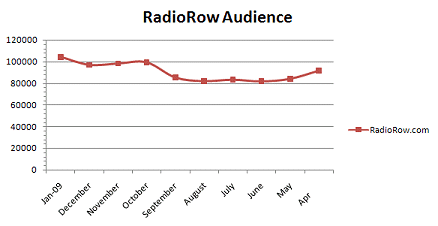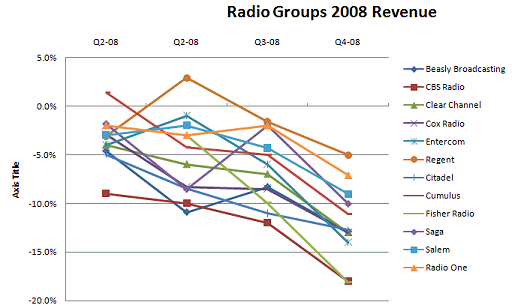 Pulling Your Radio Stream Not the Answer
Pulling Your Radio Stream Not the Answer
|
 |
Few radio industry leaders are left who have earned respect. Jerry Lee, owner of Philadelphia's highly successful B101, is one of them. He's demonstrated the vision of innovation multiple times and has never been afraid of mixing it up in the trenches to protect his hard fought turf. However, I will disagree with his announced move of pulling his station's stream off the internet.
Here are two observations. Please tell me if I'm wrong.
1) SoundExchange is squeezing as much money out of the internet environment as it can. Its latest deal with NAB was heralded as a step forward; awarding a "discounted" internet performance royalty rate to broadcasters with a boost to $2.50 per each thousand listeners per song in 2015. Many people saw this as a win. Knowledgeable people saw nothing to cheer about.
2) There was a 37.7% increase in online radio listening between 2007 and 2008, reported by AccuStream iMedia Research.
Both Ando Media and comScore/Arbitron show distinctive patterns in broadcast-originated internet radio program listening levels across each company's client stations and networks. Take a look at reports published since April 2008. We have growth, but it's not as big as radio industry trade publications have indicated.
In these radio industry backed audio-centric web sites, you'll see the big players are flatlining. Targetspot shows growth of an aggregate, and CBS is benefiting from agreements with AOL and Yahoo internet audio divisions.
|
|  |
Change focus though. Look at the general online audience by looking at Audio Graphics' RadioRow, a radio portal that launched in January 1999.
The RadioRow monthly audience can be viewed as a big picture because it offers multiple formats, and it is listed at the top of most every search engine for nearly every format related keyword. After a decade of servicing internet users, who are looking for radio stations online, RadioRow has provided a track record of performance that can be compared year-to-year.
|
 |
 |
Now, this started out about Jerry Lee's courageous announcement that he was pulling the powerful B101 FM off of the interent due to high performance royalty rates, and here's where we get back to that concept. Does Mr. Lee, or anyone in the radio industry, honestly believe that listeners will revert back to their old AM/FM receivers just because their station stops streaming? If so, it is demonstrative of the hubris which helped push radio into its current revenue mess.
A more impactful response will be to have all internet radio stations - those associated with the broadcast radio industry or simple pure-play online-only stations - begin airing more independent artists online. Limit this airplay to artists who have given permission for their songs to be played in exchange for exposure. There's no short supply of willing artists; it's a fact I can assure you of after operating RRadioMusic since 2001. An agreement is relatively easy to craft, and thousands of artists and groups have already signed ours. They know the true value of radio airplay and are willing to barter their music for it.
If a SoundExchange artist wants airtime they may pay for it like any advertiser. Their song will carry the legal disclaimer, or none because this is online, and it will help the radio industry overcome a Copyright Royalty Rate that is insensitive to logical economics.
This "Airplay for Exposure" is what will save the online radio community, not the act of having broadcasters pull their streams. The internet audience has proven in past "Day of Silence" promotions that it will just move to whatever online station is playing music. Wish as you may, in the online radio station industry there is no such things as a limit on the number of stations your receiver pulls in. Artist options are omnipresent.
The end result for indie artists and internet radio will be an opportunity, at last, to make stars while proving to record industry executives that labels are no longer needed. Artists are far more internet marketing savvy than the labels have been. They see the advantage of online promotion and sales.
As for that part about charging labels or demanding artists (like The Eagles' Don Henly) pay for airtime, radio could certainly use the additional revenue stream. Here's a look at radio industry revenues for 2008.

With respect to Mr. Lee, there is a better way than pulling your stream, and it has nothing to do with this being a "war." It's just business.

|
 |
|


 About
About


 Contact
Contact


 Indie Artists
Indie Artists


 Radio Stations
Radio Stations


 Audience Data
Audience Data


 Privacy
Privacy



|
|
 |
|
 |
 |